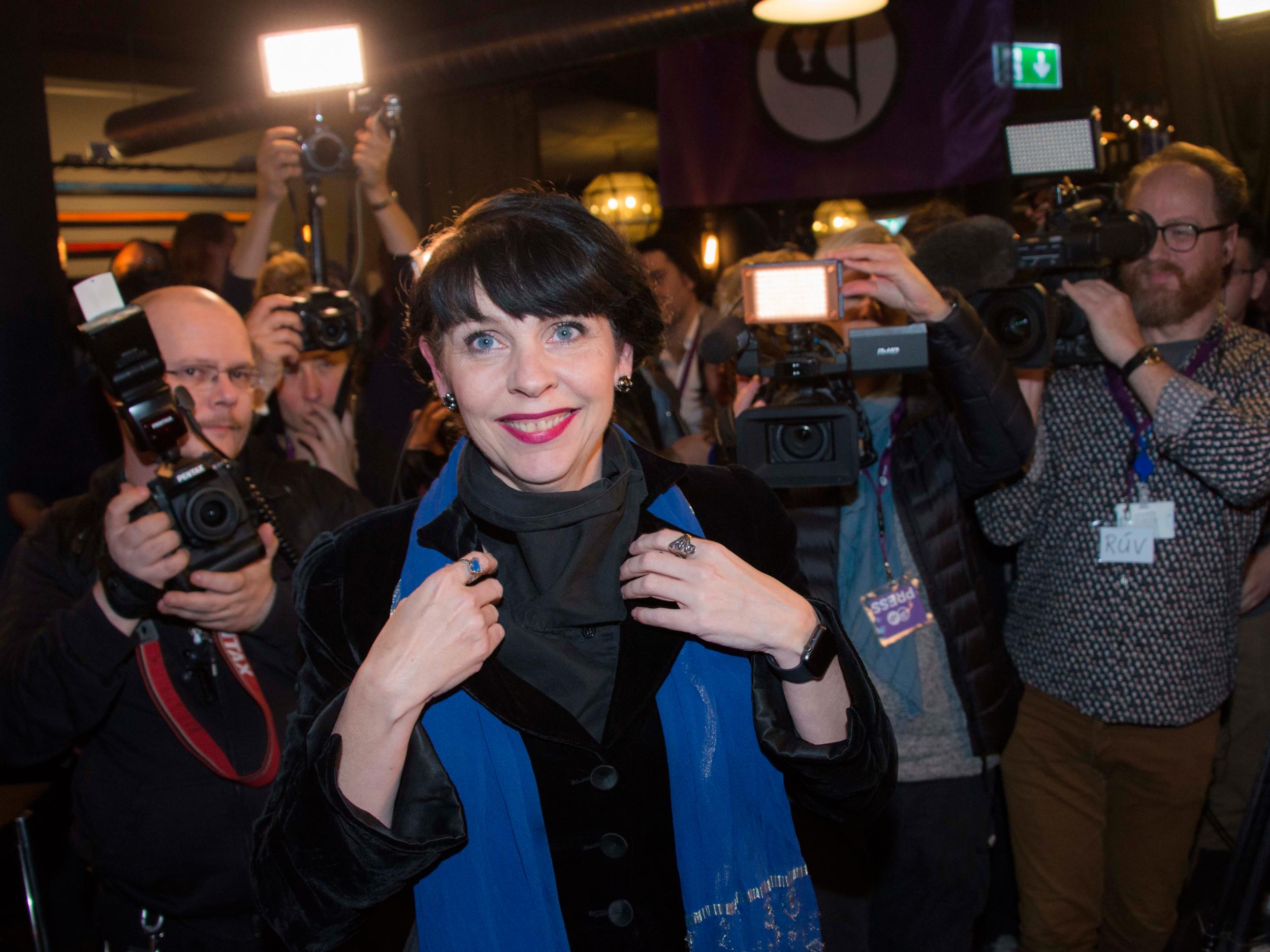Iceland's Pirate Party invited to form government
Iceland held a snap legislative election on 29 October but no party gained a clear majority

Your support helps us to tell the story
From reproductive rights to climate change to Big Tech, The Independent is on the ground when the story is developing. Whether it's investigating the financials of Elon Musk's pro-Trump PAC or producing our latest documentary, 'The A Word', which shines a light on the American women fighting for reproductive rights, we know how important it is to parse out the facts from the messaging.
At such a critical moment in US history, we need reporters on the ground. Your donation allows us to keep sending journalists to speak to both sides of the story.
The Independent is trusted by Americans across the entire political spectrum. And unlike many other quality news outlets, we choose not to lock Americans out of our reporting and analysis with paywalls. We believe quality journalism should be available to everyone, paid for by those who can afford it.
Your support makes all the difference.Iceland's president has invited the anti-establishment Pirate Party to form a government after the two largest parliamentary parties each failed to put together a coalition.
President Gudni Johannesson made the announcement on Friday after a meeting with the head of the Pirate’s parliamentary group, Birgitta Jonsdottir.
“Earlier today I met with the leaders of all parties and asked their opinion on who should lead those talks. After that I summoned Birgitta Jonsdottir and handed her the mandate,” he told reporters.
Following the meeting, Ms Jonsdottir said: "I am hopeful that we will find a way to work together."
Iceland held a snap legislative election on 29 October, but none of the seven parties or alliances managed to gain a clear majority.
The conservative Independence Party, which performed best in the vote, initially tried to form a government with the liberal, centre-right Reform Party and the centrist Bright Future, but the proposed alliance broke down over disagreements reportedly relating to the European Union, institutional reform and fishing.
The Left-Green Movement, the second biggest party, suspended coalition negotiations with the president last week.
The president then allowed the parties to hold informal talks between themselves, which led the Independence Party and the Left-Green Movement to discuss terms for sharing power, but this also failed.
It follows the resignation of Iceland’s Prime Minister, Sigurdur Ingi Johannsson, who stepped down after his centre-right Progressive Party saw its number of parliamentary seats and share of the vote halved in the general election.
The Pirate Party caused the major upset of the election by winning 10 out of the 63 parliamentary seats up for grabs.
The small and controversial party, promoting direct democracy, 35-hour working weeks and total drug decriminalisation, promised during the election campaign to implement radical institutional reforms following the Panama Papers scandal, which led to the resignation of the former Prime Minister Sigmundur David Gunnlaugsson and the snap October vote.
It won 14.5 percent of votes, which was less than pollsters had predicted, but a significant improvement on their sixth place finish in the 2013 general election.
Additional reporting by agencies
Join our commenting forum
Join thought-provoking conversations, follow other Independent readers and see their replies
Comments